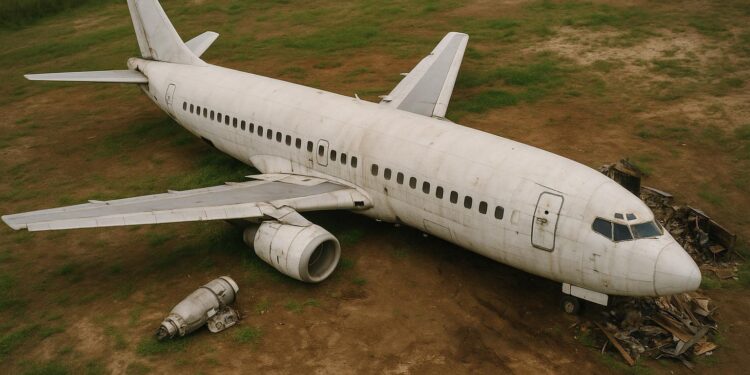Government approves ANEA blueprint
In Brazzaville, cabinet ministers on 3 November endorsed a draft bill creating the National Authority for Investigation and Analysis, abbreviated ANEA, to strengthen accident prevention in Congolese civil aviation.
Transport and Civil Aviation Minister Ingrid Olga Ghislaine Ebouka-Babackas tabled the text, which will now proceed to parliament for debate and expected adoption under an ordinary legislative procedure.
The communiqué presents ANEA as a public body with administrative status, designed to balance public-service obligations with operational autonomy.
Independence at the core of safety oversight
International evidence shows that investigative independence is a critical driver of aviation safety because it separates the fact-finding process from operators, regulators and political pressures.
In Congo, the 2010 Bureau of Investigations lacked that distance, reporting directly within ministerial structures and operating with limited legal authority.
By granting ANEA juridical personality and financial autonomy, the reform mirrors provisions of ICAO Annex 13 that recommend standalone entities for accident inquiries.
Filling gaps left by the 2010 bureau
The draft highlights several operational shortcomings: insufficient funding, shortages of modern equipment, absence of a national safety database and no formal mandate to support victims’ families.
Investigators have therefore relied on ad-hoc budgets, constraining their ability to secure flight-recorders, arrange laboratory analyses or issue timely reports.
ANEA’s statute embeds a dedicated line in the state budget and authorises external financing, including cooperation funds or technical assistance from development partners, to close these gaps.
Funding, skills and data as strategic pillars
Civil-aviation professionals consulted in Brazzaville argue that the authority’s credibility will depend on multi-year funding envelopes that allow recruitment and continuous training of investigators.
Minister Ebouka-Babackas has already indicated that a portion of overflight fees may be earmarked for ANEA’s operations, complementing treasury allocations.
The bill also mandates the creation of a secure digital platform to store occurrence data, enabling trend analysis and early warning systems aligned with Global Aviation Safety Roadmap recommendations.
Convergence with ICAO and regional benchmarks
Congo is a party to the Chicago Convention and undergoes regular ICAO audits; recent findings urged the country to reinforce separation between regulator, operator and investigator roles.
The ANEA blueprint follows similar moves by Ghana, Côte d’Ivoire and Senegal, whose independent bureaus have improved audit scores and opened doors to code-share agreements with major carriers.
Analysts expect the reform to support the Central African Economic and Monetary Community’s objective of harmonised safety oversight across its six member states.
Implications for airlines, insurers and investors
Reliable accident investigation is a positive signal for airlines assessing market entry or fleet expansion, because lower perceived risk can translate into better insurance premiums and leasing terms.
For Congo’s logistics-heavy oil and mining sectors, safer skies reduce supply-chain vulnerability and reinforce the attractiveness of Pointe-Noire and Brazzaville airports as regional hubs.
Investors following ESG criteria may also welcome the explicit attention to victims’ assistance, a social-governance dimension increasingly scrutinised by development finance institutions.
Parliamentary pathway and implementation timeline
Once introduced, the bill will be reviewed by the Economic and Financial Affairs Committee before a plenary vote; lawmakers are expected to complete the process during the current session.
The authority is slated to become operational within six months of promulgation, with an interim team preparing decrees on staffing, procurement and inter-agency coordination.
Observers note that political commitment, already evident in the cabinet’s unanimous approval, will remain essential to ensure timely financing and the safeguarding of ANEA’s autonomy over the long term.
Learning from past incidents to build a safety culture
Congo’s aviation sector has recorded relatively few commercial jet accidents in recent years, yet minor runway excursions and general-aviation incidents continue to challenge authorities.
Investigations into these events often relied on external expertise, prolonging report issuance and limiting the local engineering community’s exposure to advanced investigative techniques.
By institutionalising ANEA, policymakers aim to nurture a domestic cadre of specialists capable of issuing safety recommendations tailored to Congo’s unique operational environment.
Building skills through regional and international cooperation
The draft law authorises memoranda of understanding with peer agencies such as France’s BEA and South Africa’s AIID to facilitate staff exchanges and joint laboratories.
A fellowship programme, to be co-financed by the African Development Bank, is being explored to sponsor postgraduate studies in aerospace engineering and human-factors analysis.
Such initiatives align with the Single African Air Transport Market’s vision of a continent-wide pool of safety professionals supporting growing intra-African connectivity.
Digital transparency and public trust
Beyond technical capacity, ANEA is tasked with publishing preliminary findings within thirty days of an occurrence, a move expected to enhance transparency and reassure passengers.
Press briefings will be webcast and archived, allowing journalists, academic researchers and diaspora experts to follow investigations in real time.
The resulting information flow could gradually shift public discourse from speculation to evidence-based discussion, bolstering confidence in state institutions.
A cohesive policy horizon
Industry observers note that ANEA complements broader reforms, including the planned upgrade of navigation aids at Maya-Maya airport and the rollout of e-visa procedures, suggesting a cohesive policy aimed at positioning Congo as a gateway in Central Africa.











































